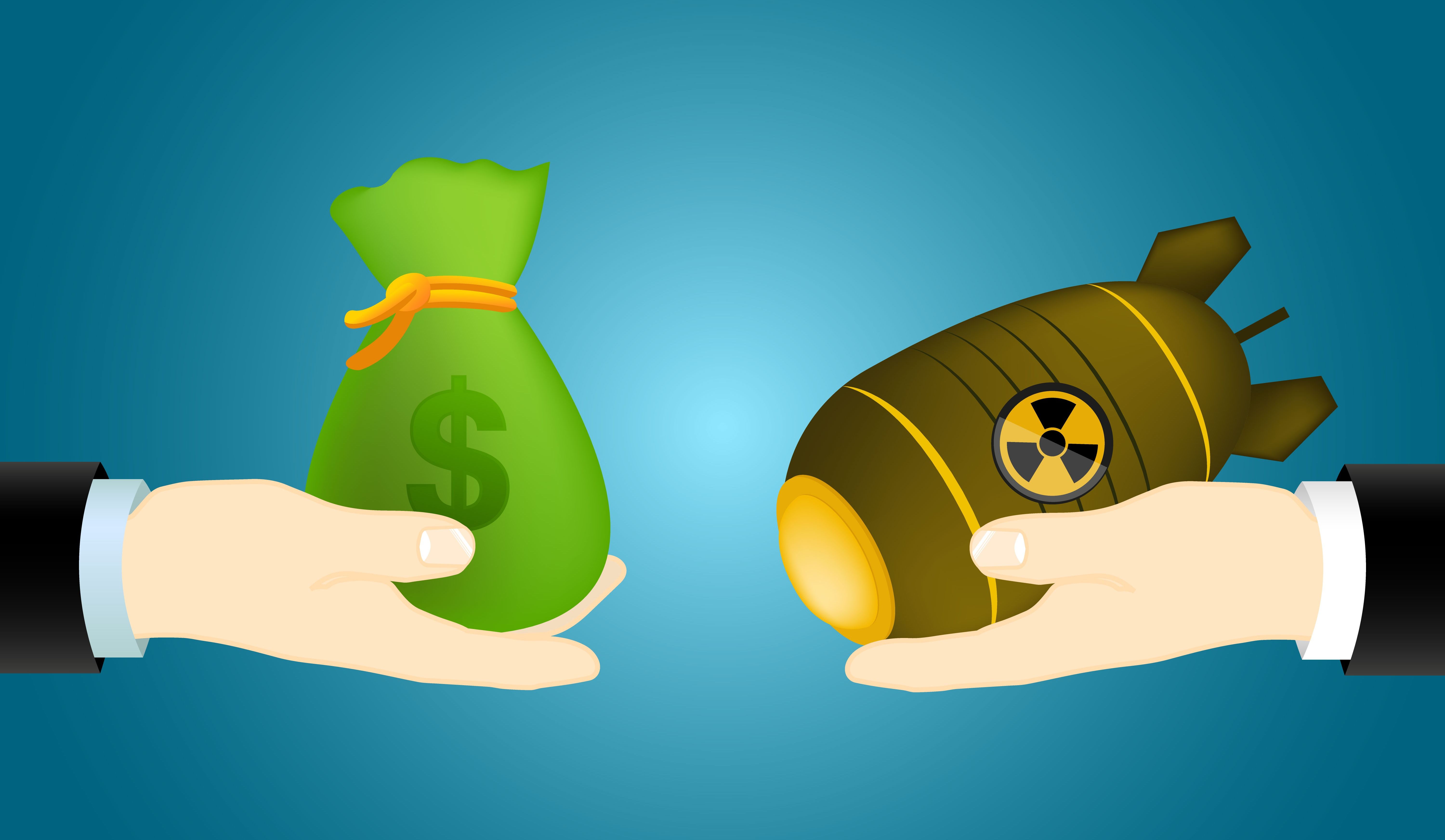Worldwide spending on nuclear weapons rose by $10.8 billion between 2022 and 2023 with 80% of the increase coming from the United States, according to a new report released on Monday by the International Campaign to Abolish Nuclear Weapons (ICAN).
The $10.8 billion increase brings annual global spending on nuclear weapons up to $91.4 billion. From 2019 to 2023, $387 billion has been spent on nuclear weapons.
“By comparison, the World Food Programme Executive Director stated in 2021 that to end world hunger, countries could spend $40 billion per year through 2030, which is a total of $360 billion over nine years,” said the report, “Surge: 2023 Global Nuclear Weapons Spending.” ICAN notes that sum is $27 billion less than what the U.S., China, Russia, the United Kingdom, France, India, Israel, North Korea and Pakistan spent on their nuclear arsenals in just five years.
ICAN points to weapons companies as profiting off the surge in spending on nukes, noting that the top 20 companies working on nuclear weapons earned more than $31 billion from their nuke related work in 2023. And “[t]here are at least $335 billion in outstanding nuclear weapons contracts to these companies, some of which continue for more than a decade,” said the report.
Honeywell International, Northrop Grumman, BAE Systems, Lockheed Martin, and General Dynamics topped the list of companies profiting from nuclear weapons expenditures.
That flood of public funds to private contractors was coupled by significant spending by these companies on efforts to shape the debate around government spending. The companies spent $118 million lobbying governments in the U.S. and France in 2023 and donated more than $6 million to think tanks researching and writing about nuclear weapons.
Lockheed Martin contributed to the most think tanks, including: Atlantic Council, Brookings Institution, Chatham House, Center for a New American Security, Center for Strategic and International Studies, Hudson Institute, and Observer Research Foundation.
The increased spending on nuclear weapons hasn’t corresponded to an increase in the absolute number of nuclear warheads, a number that has continued to decline since the end of the Cold War, but the number of nuclear weapons deployed for use with missiles and aircraft has gone up.
“While the global total of nuclear warheads continues to fall as cold war-era weapons are gradually dismantled, regrettably we continue to see year-on-year increases in the number of operational nuclear warheads,’ said Stockholm International Peace Research Institute Director Dan Smith, in a press release citing data from SIPRI’s own report on nuclear weapons, also released on Monday. “This trend seems likely to continue and probably accelerate in the coming years and is extremely concerning.”
SIPRI points to tensions over the Ukraine and Gaza wars weakening nuclear diplomacy. Last year, Russia suspended its participation in the last remaining treaty limiting Russia and U.S. strategic nuclear forces and the U.S. suspended sharing its own nuclear weapons data with Russia as required by the treaty.
SIPRI also cites Russia’s repeated threats of using nuclear weapons and the Israel-Hamas war, which upended an informal agreement between the U.S. and Iran to de-escalate tensions. That conflict has also undermined efforts to engage Israel — which has never acknowledged its nuclear weapons program — in the Conference on the Establishment of a Middle East Zone Free of Nuclear Weapons and Other Weapons of Mass Destruction, which has contributed to an overall weakening of nuclear diplomacy.
While nuclear weapons contractors are enjoying new contracts of billions of dollars in public funds, the overall outlook for constraining the use of nuclear weapons is looking much worse.
“We have not seen nuclear weapons playing such a prominent role in international relations since the cold war,” said Wilfred Wan, Director of SIPRI’s Weapons of Mass Destruction Programme at the release of the new report. “It is hard to believe that barely two years have passed since the leaders of the five largest nuclear-armed states jointly reaffirmed that ‘a nuclear war cannot be won and must never be fought.’”
















